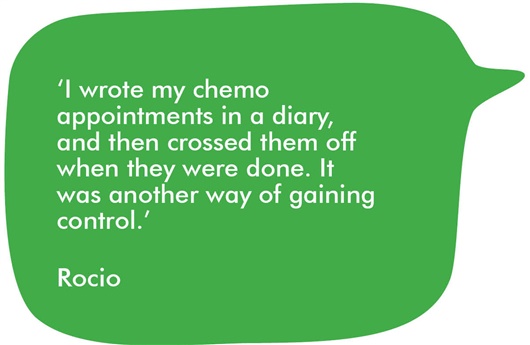Today is International Literacy Day! In this blog, our intern Zahrah explains more about the day and what it stands for. She also talks about what we do to make our cancer information clear and easy for people to understand.
50 years ago, United Nations Educational, Scientific and Cultural Organization (UNESCO) officially announced 8th September as International Literacy Day. The aim is to raise international awareness about improving literacy rates and tackle issues including a person’s ability to access and understand health related information.
According to the National Literacy Trust: ‘Around 16%, or 5.2 million adults in England, can be described as "functionally illiterate". They would not pass an English GCSE and have literacy levels at or below those expected of an 11-year-old.’
In our team, we are very aware that there is a lot of information about cancer. And that it can be quite overwhelming to understand information and words that we aren’t familiar with. We need to think about the language we use and how we write it. We try to make sure that everyone affected by cancer can easily read and understand our information, and so the reading age of our content is 12.
We have medical professionals and also people who have experienced cancer to help us make sure our information is easy to make sense of. Our team of volunteer reviewers play a huge part in helping us improve our cancer information by giving us honest feedback. We currently have over 200 reviewers and are always looking for more to join our team, so if you love reading and would like to help others affected by cancer, this is a great opportunity!
Our editors and content developers are also constantly thinking about whether the information they are working on is as clear and easy to read as possible. Here are some of the important things we consider to improve the clarity of our content:
Make only one point per sentence.
Keeping sentences short and making one point at a time makes it easier to understand the information.

Everyone has the right to have information that empowers and supports them. The Cancer Information and Development (CID) team produce a range of information as booklets and leaflets, and in a variety of online and audio formats to meet everyone’s needs.
We also offer a range of languages and formats and sign language videos too.
If you can’t find what you’re looking for, call our cancer support specialists on 0808 808 00 00.We are always here to help.
To see what else Macmillan's cancer information team has been blogging about, please visit our blog home page! You can subscribe to receive our blogs by email or RSS too.
We're with you every step of the way
The Macmillan team is here to help. Our cancer support specialists can answer your questions, offer support, or simply listen if you need a chat. Call us free on 0808 808 00 00.
Comments? Feel free to add them below (you need to be logged in).
Keep in touch Follow Macmillan’s cancer information team on Twitter @mac_cancerinfo
Whatever cancer throws your way, we’re right there with you.
We’re here to provide physical, financial and emotional support.
© Macmillan Cancer Support 2024 © Macmillan Cancer Support, registered charity in England and Wales (261017), Scotland (SC039907) and the Isle of Man (604). Also operating in Northern Ireland. A company limited by guarantee, registered in England and Wales company number 2400969. Isle of Man company number 4694F. Registered office: 89 Albert Embankment, London SE1 7UQ. VAT no: 668265007